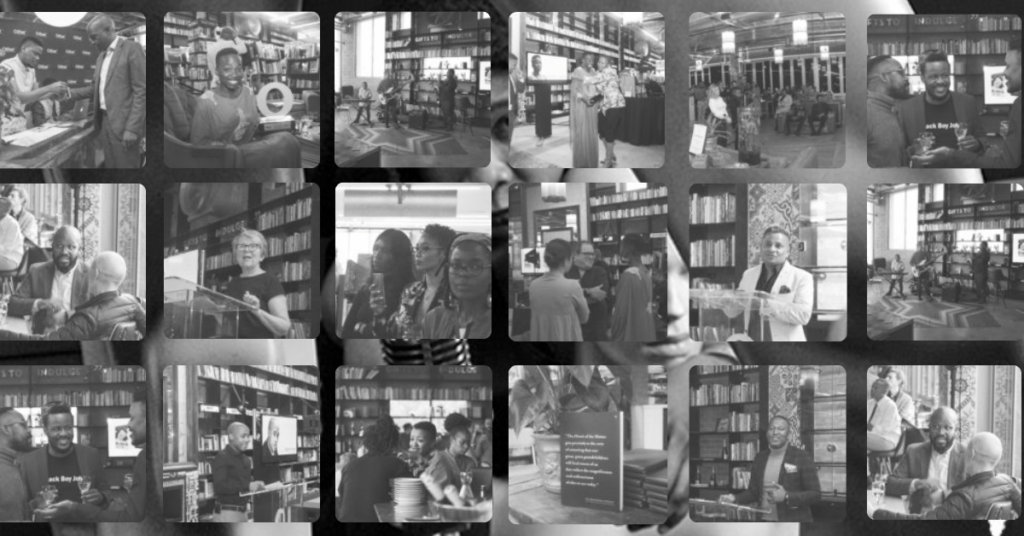The Other Foundation and the Jacana Literary Foundation have announced the 12 finalists for the Gerald Kraak Prize for Writing and Photography on African Perspectives on Gender, Social Justice, and Sexuality. The brave, stirring, and multi-layered pieces represent modern, provocative storytelling. The prize-giving event will be held on Africa Day, 25 May 2022, at ColourLab in Cape Town, South Africa, with a keynote address by Lebo Mashile.
The event will be the fourth edition of the Gerald Kraak Prize, launched in 2016 in honour of anti-apartheid activist and award-winning author Gerald Kraak (1956 – 2014). The finalists were selected from over 200 submissions received from 20 African countries. The prize is the only one that is open to all forms of writing and art: fiction, poetry, journalism, photography, and academic writing.
The finalists were chosen by an illustrious judging panel of Otosirieze Obi-Young (Nigeria), as chair; Mark Gevisser (South Africa); and Ellah Pedzisai Wakatama (Zimbabwe). Otosirieze, editor of Open Country Mag, selected a longlist of 40. Three mentors—Shaun de Waal, Makhosazana Xaba, and Sandile Ngidi—worked with some of the longlisted writers to polish their submissions. The judges now have the unenviable task of selecting a winner and a runner-up.
This year, for the first time, each finalist will receive $200.
The 12 Finalists, with Judges’ Citation
Kanyinsola Olorunnisola, ‘The Women in My Life Are Unfinished Portraits’ (Nigeria)
Here is the life of a young woman trapped between spirituality, depression, and generational malaise. Here is an intriguing, adventurous story told with a sense of transgression and a gentle, refreshing mischief—an attempt to capture “bad-assness” in prose as well as the fragmentary nature of identity. It suggests: we are all stuck in something and we don’t always know what and how.
Abdulrahim Hussani, ‘Twilight’ (Nigeria)
There is a delicate telling here of loss, displacement, and vulnerability. We are taken through a hunger-stricken refugee camp, into the narrator’s mother’s heartbreaking relationship with a politician.
Halim Olaposi, ‘The Road’ (Nigeria)
A moving evocation of a man and a woman discovering their shared love for a man who died trying to escape to Europe as an economic migrant. The depiction of the hell of trans-Sahara migrancy is robust, and the engagement between the two characters subtle and complex, revealing the limits of what they know about the man they love. It is a tale of reconnection via grief.
Chisom Okafor, ‘A Shorter Note on My Coming Out,’ ‘Birthing,’ & ‘My Sex Drive as a Basis for Other Interpretations’ (Nigeria)
In three ambitious, well-crafted poems, Okafor depicts moments in gay life with assuredness, providing passion, empathy, a beautiful reflection on grief and love, and a tale of a boy rediscovering himself, refreshing his sense of life.
Moso Sematlane, ‘The Boys Whose Hearts Were Sepulchres’ (Lesotho)
A memorable story capturing the loneliness and bravery of a queer black kid in a provincial, largely white South African setting. There is gentleness to the storytelling, showing a sense of place and the forbidden longings, at several levels, of youth.
Obinna Obioma, ‘When God Is a (Wo)man’ (Nigeria)
An interesting take on sexuality, gender roles, and tradition, in which the narrator leads us into their secret life as a trans man, as well as their unusual family.
Ernest Ogunyemi, ‘Impossible’ (Nigeria)
A tightly crafted poem about desire and the shock of the unexpected.
Kasimma, ‘Where One Falls Is Where Their God Pushed Them Down’
A humorous, pacy, confident coming-out (or not) story about a churchgoer, the older pastor she desires, and her suspicious mother. The characters are well drawn.
Ukamaka Olisakwe, ‘Slut’ & ‘The Grasscutters Curse
Olisakwe’s combo of poetry and fiction centers women’s bodies. With power and mischief, ‘Slut’ confronts traditional patriarchy in Igbo society, detailing a woman’s psychological development and sexual awakening, and exhuming her into the freedom of desire. With steady, confident assurance, ‘The Grasscutter’s Curse’ sits us with a 19-year-old girl in harrowing labour. It is a pitch-perfect depiction of both the physical and familial contexts of childbirth, and a family drama unfolds, which reveals the way women treat their daughters-in-law in patriarchal systems.
Udeh-Ubaka Roy, ‘Until It Doesn’t’ (Nigeria)
Brave fiction that tweaks the possibilities of the short story form, both in its use of voice and the way it compresses time, to illuminate the truth of so many queer people: the need to marry and make families. The use of the second person plural implicates us all while creating the tension of distance, and the sense of both peace, and loss, in its two protagonists in old age is deeply moving. It is beautiful how so much life is packed in and yet there is restraint.
Sheena Magenya, ‘A Thing More Difficult Than This’ (Kenya)
A strong, memorable story that pins us in the shoes of a jobseeker who, unable to disappoint her family, finds herself in a coerced sexual relationship to secure employment. It is also a portrait of the aspiring middle class in today’s rapidly developing Nairobi.
Davina Philomena Nassozi-Kawuma, ‘Of Birds and Bees’ (Uganda)
A lively, spicy, edgy story that unpicks the taboos around female sexual desire and orgasm—in relation to men, and not—which becomes a wider commentary on the gendered and racial politics of storytelling. It has a wry tone and a good sense of place.
We congratulate the finalists and wish them well in the final judging for the 2022 Gerald Kraak Prize.
For all media enquiries, review copies or interview requests, please contact: Samuel Shapiro, The Other Foundation, +27 83 261 7804; and Kelly Ann Mawa, Jacana Media, 011 628 3239.





One Response
Splendid names born out our splendid judges.